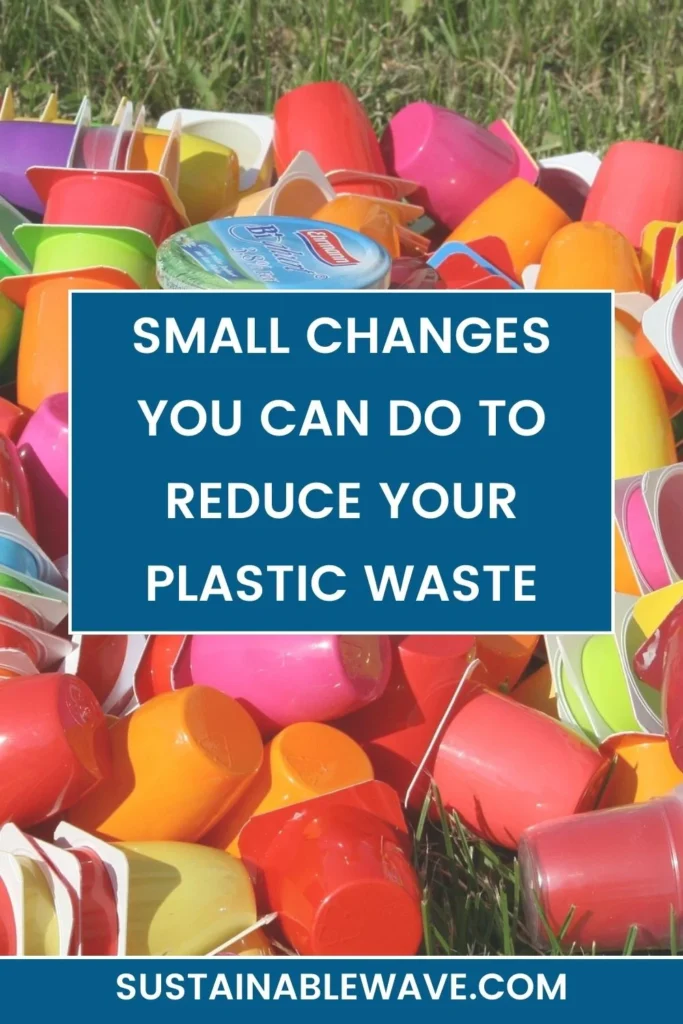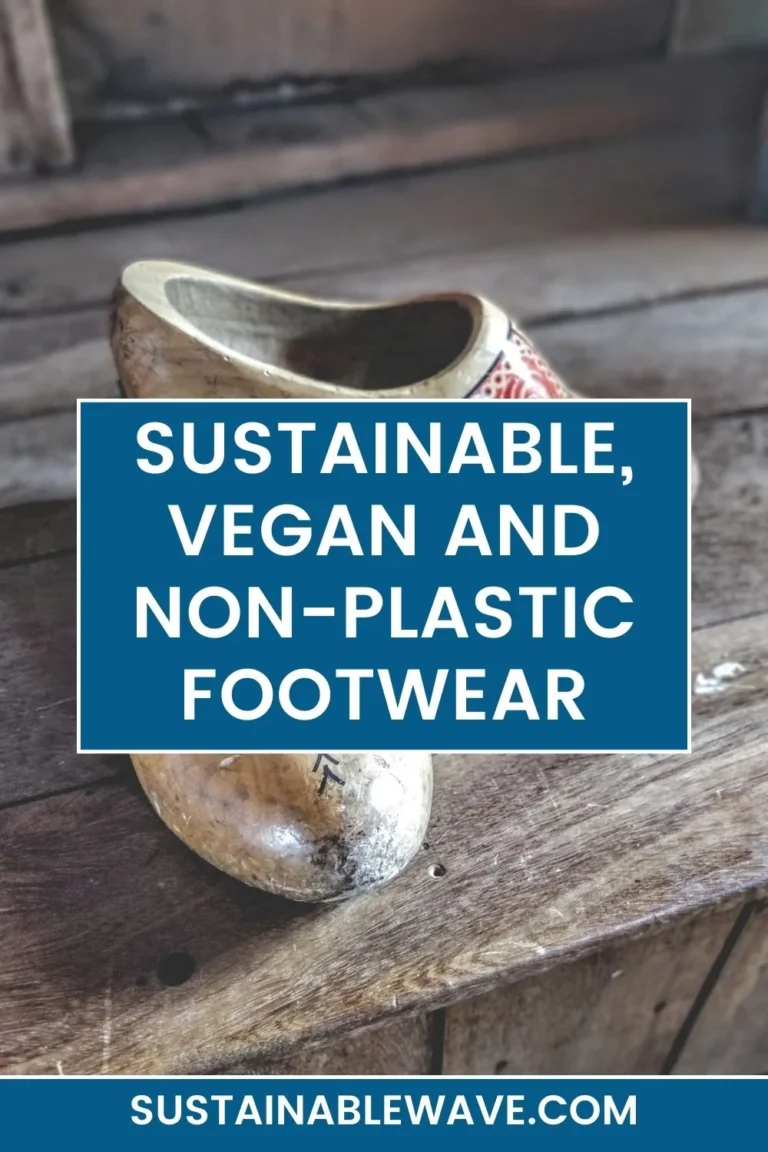In today’s rapidly changing environment, the issue of plastic waste has never been more pressing. With oceans brimming with plastic and landfills overflowing, the call to action is clear. Fortunately, making a difference doesn’t have to be overwhelming. Small, manageable changes in our daily routines can significantly reduce our plastic footprint.
From switching to natural fiber clothing to embracing reusable items, and from choosing eco-friendly personal care products to adopting smarter shopping habits, there are countless ways to reduce your plastic waste and contribute to a healthier planet.
This guide offers practical and accessible tips for everyone looking to make an eco-friendly shift without sacrificing convenience or breaking the bank.
Small Changes You Can Do to Reduce Your Plastic Waste

Natural Fiber Clothing
Opting for clothing made from natural fibers is not just a style choice; it’s a significant step toward environmental conservation.
Synthetic materials like polyester, acrylic, and nylon are notorious for shedding microplastics, especially during washing and drying. These tiny pollutants eventually make their way into our ecosystems, causing harm to wildlife and polluting our water sources.
By choosing garments crafted from cotton, linen, wool, or other natural materials, we not only reduce this microplastic menace but also support sustainable fashion practices.
Natural fibers offer the added benefit of being compostable at the end of their lifecycle, further reducing our environmental footprint.
Whole Ingredients and Fresh Produce
In a world where convenience often comes wrapped in plastic, choosing whole ingredients and fresh produce is a simple yet effective way to combat plastic waste. This approach not only minimizes packaging but also encourages healthier eating habits.
By starting with just one ingredient, like fresh carrots instead of packaged side dishes, we can significantly reduce our reliance on plastic.
Additionally, using bar soap and solid glass containers for leftovers instead of plastic wraps or bags further cuts down on waste.
Reusable Items
Embracing reusable items is a powerful way to curb our plastic consumption. The transition from single-use plastics to durable, reusable alternatives is easier than one might think.
For instance, swapping out disposable razors for a safety razor not only reduces waste but also saves money in the long run.
Similarly, investing in quality, secondhand clothing can significantly extend the lifecycle of garments and reduce the demand for new, often plastic-based fibers.
Simple acts like bringing your own metal utensils or cloth bags for shopping can drastically cut down on the plastic we use daily, paving the way for a more sustainable lifestyle.
Waste Reduction Techniques
Mastering waste reduction techniques is essential for minimizing our environmental impact. A key strategy is being meticulous about sorting our trash and aiming to reduce the amount each week.
Innovations like washing and reusing ziplock bags, repurposing plastic containers, and choosing reusable over disposable items can significantly cut down on household waste.
Additionally, buying locally and second-hand not only reduces packaging but also supports the community and saves resources.
Laundry and Cleaning Products
Rethinking our laundry and cleaning products is a simple yet impactful way to reduce plastic waste.
Opting for laundry tablets or powder detergents in cardboard boxes instead of liquid in plastic jugs can significantly cut down on plastic use. Furthermore, using bar soap for cleaning and shampooing reduces the need for plastic bottles.
For those looking to make even more substantial changes, investing in eco-friendly, non-toxic cleaning products like those offered by companies committed to reducing plastic packaging can further diminish our environmental footprint.
Personal Care Products
Transitioning to eco-friendly personal care products is a crucial step towards a sustainable lifestyle.
The shift from traditional plastic-packaged goods to alternatives like shampoo bars, silicone ziplock bags for storage, and natural deodorants in cardboard packaging can make a significant difference in reducing plastic waste.
These products not only minimize our environmental impact but also offer healthier options free from harsh chemicals.
Moreover, making your own tea or using products with minimal and biodegradable packaging nurtures both the planet and our well-being, showcasing how personal care can go hand in hand with environmental care.
Safety Razors
Switching to a safety razor from disposable ones is not just a nod to the past; it’s a forward-thinking choice for both the environment and your wallet.
A safety razor (Amazon link), with its durable handle and replaceable blades, offers a closer, more efficient shave while drastically reducing plastic waste. The initial investment pays off quickly, as blades are remarkably cheaper than disposable razors.
Moreover, the elegance and efficiency of using a safety razor can transform a mundane routine into a ritual, making sustainability an integral part of our daily lives.
Reducing New Purchases
Minimizing new purchases plays a pivotal role in sustainable living. By focusing on buying less and choosing secondhand when possible, we can significantly reduce the demand for new products and their associated plastic packaging.
This approach not only lessens our environmental footprint but also encourages a shift towards a more mindful and minimalist lifestyle. Investing in quality items that last longer, joining community swap groups, and repairing instead of replacing are all practices that support this ethos.
Reducing consumption saves resources and highlights the value of appreciating and reusing what we already have.
Specific Product Swaps
Making specific product swaps is a practical approach to reducing plastic waste.
For example, opting for bar soap instead of liquid, using powder dish and laundry detergent in cardboard packaging, and replacing plastic wrap with beeswax wraps are all simple changes with significant impacts.
Even small swaps, like choosing lip balm in metal tins or adopting bamboo toothbrushes, contribute to a larger effort to minimize plastic use.
These swaps not only reduce our environmental footprint but also often offer more natural and health-conscious alternatives to conventional products, proving that eco-friendly choices can be both beneficial and accessible.
Broader Lifestyle Changes
Adopting broader lifestyle changes is essential for a profound environmental impact.
This includes major shifts like reducing car use to cut down on microplastics from tires and avoiding seafood to decrease support for industries contributing to ocean plastic.
Embracing a lifestyle that prioritizes sustainability over convenience can significantly reduce our plastic consumption and overall ecological footprint.
These changes, while sometimes challenging, promote a healthier planet and a more conscious way of living.

Reducing your plastic waste isn’t just an environmental responsibility—it’s a testament to our commitment to future generations.
Small changes, from opting for natural fiber clothing and whole ingredients to embracing reusable items and making specific product swaps, can collectively lead to significant reductions in plastic pollution.
Each step we take, no matter how small, is a step towards a more sustainable and plastic-free world.
I’m Thomas, the owner of SustainableWave. Passionately promoting a sustainable planet. With experience in various eco-roles, I’ll share green tips, sustainability hacks, and personal eco-journeys on my blog.






